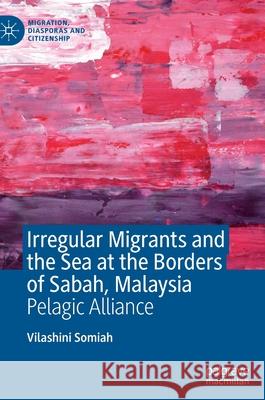Irregular Migrants and the Sea at the Borders of Sabah, Malaysia: Pelagic Alliance » książka
topmenu
Irregular Migrants and the Sea at the Borders of Sabah, Malaysia: Pelagic Alliance
ISBN-13: 9783030904166 / Angielski / Twarda / 2021 / 192 str.
Irregular Migrants and the Sea at the Borders of Sabah, Malaysia: Pelagic Alliance
ISBN-13: 9783030904166 / Angielski / Twarda / 2021 / 192 str.
cena 434,47 zł
(netto: 413,78 VAT: 5%)
Najniższa cena z 30 dni: 412,29 zł
(netto: 413,78 VAT: 5%)
Najniższa cena z 30 dni: 412,29 zł
Termin realizacji zamówienia:
ok. 16-18 dni roboczych.
ok. 16-18 dni roboczych.
Darmowa dostawa!
Kategorie:
Kategorie BISAC:
Wydawca:
Springer Nature Switzerland AG
Seria wydawnicza:
Język:
Angielski
ISBN-13:
9783030904166
Rok wydania:
2021
Ilość stron:
192
Waga:
0.38 kg
Wymiary:
21.01 x 14.81 x 1.27
Oprawa:
Twarda
Wolumenów:
01
Dodatkowe informacje:
Wydanie ilustrowane











